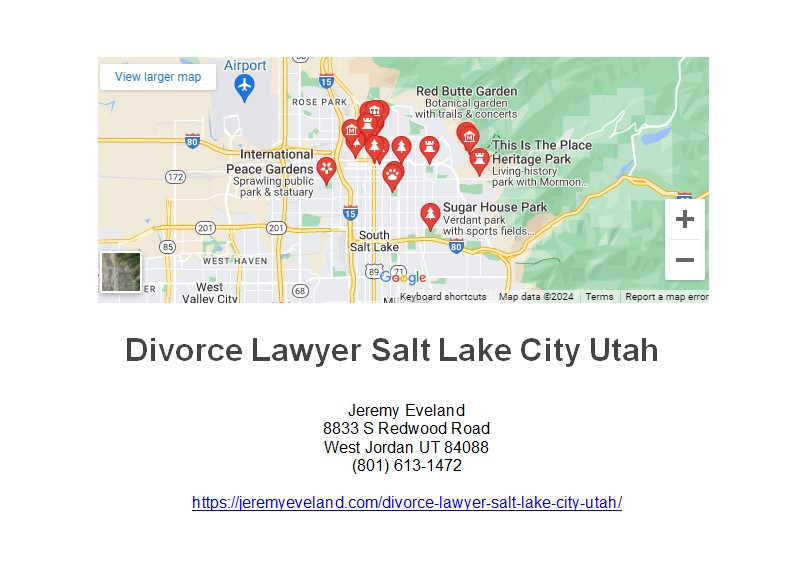Are you in need of a skilled and experienced car accident attorney in Salt Lake City, Utah? Look no further! This article is here to provide you with all the information you need to make an informed decision. Whether you’ve been involved in a minor fender bender or a more serious collision, our dedicated team of legal experts is ready to fight for your rights and ensure you receive the compensation you deserve. With their extensive knowledge of Utah’s laws and regulations, our attorneys will guide you through the complex process, providing you with peace of mind and the support you need during this challenging time. Don’t wait, reach out to our car accident attorney in Salt Lake City, Utah, and let us help you navigate the legal system effectively. Get in touch today to schedule a consultation and take the first step towards achieving the justice you deserve.
Car Accident Attorney Salt Lake City Utah
Car accidents can be traumatic and overwhelming experiences. In the aftermath of a car accident, it is crucial to have the support and guidance of a knowledgeable car accident attorney. If you have been involved in a car accident in Salt Lake City, Utah, hiring a car accident attorney can make all the difference in protecting your rights and ensuring you receive the full compensation you deserve.
Why You Need a Car Accident Attorney
Protecting Your Rights
After a car accident, insurance companies may try to take advantage of your vulnerable state and offer you a settlement that is far less than what you truly deserve. A car accident attorney will fight to protect your rights and ensure that you are treated fairly throughout the claims process.
Dealing with Insurance Companies
Navigating the complex and often confusing world of insurance claims can be a daunting task. An experienced car accident attorney will have the expertise to negotiate with insurance companies on your behalf, handling all communication and paperwork, and advocating for your best interests.
Navigating Legal Procedures
Legal procedures can be overwhelming for individuals who are not familiar with the law. A car accident attorney will guide you through the entire legal process, explaining every step along the way and ensuring that you meet all necessary deadlines and requirements.
Maximizing Your Compensation
A car accident can result in significant financial burdens, including medical expenses, lost wages, and property damage. A skilled car accident attorney will work diligently to maximize your compensation, taking into account all past, present, and future damages and losses you have suffered as a result of the accident.
Peace of Mind
Navigating the aftermath of a car accident can be incredibly stressful. By hiring a car accident attorney, you can have peace of mind knowing that you have a dedicated professional on your side, handling all legal matters and fighting for the best possible outcome for your case.
Choosing the Right Car Accident Attorney
When it comes to selecting a car accident attorney in Salt Lake City, there are several important factors to consider. Here are some key qualities to look for:
Experience and Expertise
It is crucial to choose an attorney who specializes in car accident cases and has a proven track record of success. Look for an attorney with substantial experience handling car accident claims and a deep understanding of Utah’s car accident laws.
Reputation and Track Record
Research the attorney’s reputation and track record by reading client testimonials and reviews. Look for an attorney who is known for their professionalism, dedication to clients, and ability to achieve favorable outcomes.
Communication and Personal Attention
Clear and open communication is essential when working with an attorney. Look for an attorney who is responsive to your inquiries and keeps you updated on the progress of your case. It is also important to find an attorney who will provide personal attention, treating you as an individual rather than just another case number.
Fee Structure
Discuss the attorney’s fee structure during the initial consultation to ensure that it aligns with your financial situation. Many car accident attorneys work on a contingency fee basis, meaning they only collect a fee if they successfully recover compensation for you. This can be beneficial as it allows you to pursue your case without the added financial burden of upfront attorney fees.
Client Reviews and Testimonials
Take the time to read reviews and testimonials from previous clients to get a better sense of the attorney’s reputation and the level of satisfaction their clients have experienced. Positive reviews can provide reassurance that you are choosing a reputable and reliable attorney.
Common Causes of Car Accidents
Understanding the common causes of car accidents can help you to be more aware and cautious on the road. Here are some of the most prevalent causes of car accidents:
Distracted Driving
Distracted driving, such as texting, talking on the phone, eating, or engaging with electronic devices, is a leading cause of car accidents. It only takes a split second of distraction for an accident to occur.
Speeding
Exceeding the speed limit is a dangerous behavior that significantly increases the likelihood of an accident. Speeding reduces the driver’s ability to react to sudden changes on the road and can have devastating consequences.
Drunk Driving
Driving under the influence of alcohol or drugs impairs judgment, coordination, and reaction time. Drunk driving accidents often result in severe injuries or fatalities. It is always best to designate a sober driver or arrange alternative transportation if you plan to drink.
Reckless Driving
Reckless driving includes behaviors such as aggressive driving, tailgating, changing lanes without signaling, and ignoring traffic signals and signs. Reckless drivers put themselves and others at significant risk of accidents.
Poor Weather Conditions
Inclement weather, such as rain, snow, or fog, can make road conditions treacherous. Reduced visibility, slippery surfaces, and poor traction increase the likelihood of accidents.
Defective Vehicle or Parts
Malfunctioning vehicles or defective parts can lead to accidents. Common defects include faulty brakes, defective tires, or problems with steering and suspension systems. Car manufacturers or parts suppliers may be held liable in such cases.
Roadway Hazards
Roadway hazards such as potholes, construction zones, or inadequate signage can contribute to accidents. The responsible party for such hazards may vary, and a car accident attorney can help determine liability.
Steps to Take After a Car Accident
Being prepared and taking the right steps after a car accident is crucial for your well-being and your legal case. Here are the recommended steps to take:
Ensure Safety and Seek Medical Attention
The first priority after a car accident is to ensure your safety and the safety of others involved. If you or anyone else is injured, call for medical assistance immediately. Never underestimate the importance of seeking medical attention, even if your injuries seem minor.
Call the Police and Document the Accident
Contact the police to report the accident, even if it seems minor. Police reports can provide vital documentation for your insurance claim and any potential legal case. Take photos of the accident scene, including vehicle damage, road conditions, and any visible injuries.
Exchange Information with Other Parties
Exchange contact and insurance information with all involved parties. This includes names, phone numbers, addresses, driver’s license numbers, license plate numbers, insurance policy numbers, and insurance company contact information.
Gather Witness Statements and Evidence
If there were witnesses to the accident, ask for their contact information and statements. Additionally, collect any evidence that may support your case, such as traffic camera footage, surveillance footage, or dashcam recordings.
Notify Your Insurance Company
Promptly notify your insurance company about the accident. Be honest and provide accurate information when filing your claim. It is recommended to consult with a car accident attorney before making any statements to your insurance company.
Contact a Car Accident Attorney
To protect your rights and maximize your chances of receiving fair compensation, it is highly advisable to contact a car accident attorney as soon as possible after the accident. An experienced attorney will guide you through the legal process and represent your best interests.
Understanding Car Accident Laws in Utah
Knowing the specific car accident laws in Utah is crucial for successfully navigating a car accident claim. Here are some key aspects of car accident laws in Utah:
No-Fault Insurance System
Utah follows a no-fault insurance system, which means that after a car accident, you must first seek compensation from your own insurance company regardless of who was at fault. However, there are exceptions to this rule, such as if the accident resulted in serious injuries or significant property damage.
Statute of Limitations
In Utah, the statute of limitations for filing a car accident claim is generally three years. It is crucial to act promptly and within the designated time frame to preserve your right to seek compensation.
Comparative Negligence
Utah follows the doctrine of comparative negligence, which means that if you were partially at fault for the accident, your compensation may be reduced by the percentage of your own fault. However, Utah law restricts recovery if you are found to be 50% or more at fault.
Modified Comparative Fault Rule
Under the modified comparative fault rule, you can still file a claim even if you were partially at fault for the car accident. However, your compensation will be reduced based on your degree of fault. For example, if you are found to be 20% at fault, your compensation will be reduced by 20%.
Insurance Requirements
Utah has minimum insurance requirements that all drivers must meet. As of 2021, drivers must carry liability insurance with the following minimum coverage: $25,000 for bodily injury per person, $65,000 for bodily injury per accident, and $15,000 for property damage per accident.
Determining Liability in Car Accident Cases
Determining liability is a crucial aspect of any car accident case. Here are some factors that can help determine liability:
Negligence
Negligence occurs when a driver fails to exercise reasonable care while operating a vehicle. To establish negligence, it must be proven that the at-fault driver breached their duty of care and that this breach directly caused the accident and resulting damages.
Recklessness
Reckless driving involves deliberately disregarding traffic laws and behaving in a manner that poses a significant risk to others on the road. Reckless drivers can be held liable for their actions.
Strict Liability
Strict liability may apply in cases involving defective vehicles or parts. In such cases, the manufacturer, retailer, or distributor may be held strictly liable for any injuries or damages caused by the defect.
Multiple Defendants
In some car accident cases, there may be multiple parties who share liability for the accident. This can include other drivers, automobile manufacturers, government entities responsible for road maintenance, or employers of negligent drivers.
Third-Party Liability
Sometimes, liability may extend beyond the drivers involved in the accident. For example, if the accident was caused by a driver acting within the scope of their employment, their employer may also be held liable.
Compensation Available for Car Accident Victims
If you have been injured in a car accident in Salt Lake City, Utah, you may be entitled to various types of compensation, depending on the circumstances of your case. Here are some types of compensation commonly available to car accident victims:
Medical Expenses
Compensation may cover medical expenses related to your injuries, including emergency room visits, hospital stays, surgeries, medications, rehabilitation, and ongoing medical treatment.
Lost Wages
If your injuries prevent you from working, you may be entitled to compensation for lost wages. This can include both current and future lost income resulting from your accident-related injuries.
Pain and Suffering
Pain and suffering compensation is meant to address the physical and emotional distress you have endured as a result of the accident and your injuries. This can include physical pain, emotional trauma, loss of enjoyment of life, and mental anguish.
Property Damage
If your vehicle or other property was damaged in the accident, you may be eligible for compensation to cover the costs of repairs or the fair market value of the property if it was deemed a total loss.
Wrongful Death
In the tragic event of a car accident resulting in loss of life, the surviving family members may be entitled to compensation through a wrongful death claim. This can include funeral and burial expenses, loss of financial support, loss of companionship, and emotional distress.
Proving Negligence in Car Accident Cases
To successfully prove negligence in a car accident case, the following elements must be established:
Duty of Care
It must be shown that the at-fault driver owed a duty of care to operate their vehicle safely and adhere to traffic laws.
Breach of Duty
The plaintiff must demonstrate that the at-fault driver breached their duty of care by acting negligently or recklessly.
Causation
The plaintiff must establish a causal link between the at-fault driver’s breach of duty and their injuries or damages.
Damages
The plaintiff must provide evidence of the injuries and damages they have suffered as a direct result of the accident.
Collecting Evidence
Evidence is crucial for proving negligence in a car accident case. This can include police reports, photographs, witness statements, medical records, accident reconstruction reports, and expert testimony, among other forms of evidence. A car accident attorney can assist in collecting and preserving evidence to strengthen your case.

FAQ Answers
- In Utah, the statute of limitations for filing a car accident claim is generally three years.
- The amount of compensation you can receive for your car accident injuries depends on various factors such as the severity of your injuries, medical expenses, lost wages, and pain and suffering.
- Yes, you can still file a claim even if you were partially at fault for the car accident. Utah follows the modified comparative fault rule, allowing you to recover compensation as long as you are less than 50% at fault.
- Most car accident claims are settled out of court through negotiation or mediation. However, if a fair settlement cannot be reached, your attorney may advise you to file a lawsuit and proceed to trial.
- Car accident attorneys typically work on a contingency fee basis, meaning they only get paid if they successfully recover compensation for you. The specific cost may vary depending on the attorney, but it is important to discuss the fee structure during the initial consultation.
In conclusion, if you have been involved in a car accident in Salt Lake City, Utah, it is crucial to consult with a car accident attorney to protect your rights, navigate the legal process, and maximize your compensation. A skilled attorney will provide the necessary guidance and support to help you recover physically, emotionally, and financially from the consequences of a car accident. Don’t hesitate to reach out to a trusted car accident attorney to ensure you receive the legal representation you need during this challenging time.























